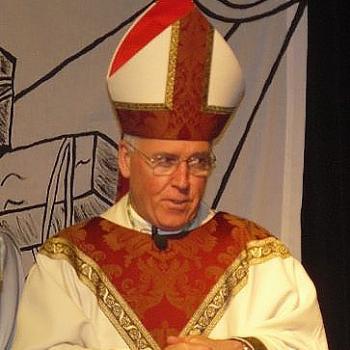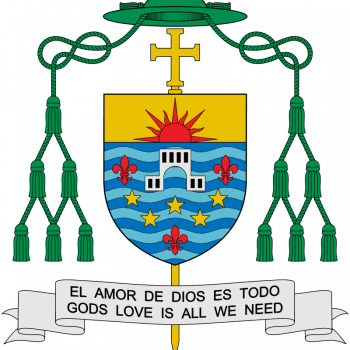Details, from the National Catholic Reporter:
Tomas Murray, a member of a Catholic Worker community in Ohio, thinks where the bishops choose to eat also sends a significant message about how they see the role of the U.S. Catholic church.
Murray is one of several people hosting an alternative dinner option for the prelates Tuesday night. They want the focus of their meal, held on the night of the annual assembly at which the bishops are also invited to a dinner in support of Catholic military chaplains, to be focused on peacemaking.
The U.S. bishops are meeting in Baltimore for their annual plenary assembly Monday through Thursday.
Murray said the idea for the alternative meal came as he and the others reflected on the bishops’ vote last year to support the sainthood cause for Dorothy Day, the New Yorker who with Peter Maurin co-founded the Catholic Worker…
…”We were struck by the irony that last year at the fall conference, the bishops voted unanimously … to progress the cause of Dorothy Day, and yet the biggest event of their conference is a dinner for chaplains,” Murray said. “So we thought, ‘Why don’t we have a roundtable discussion and invite the bishops to it?’ ”
“We thought maybe it could be some way of maybe having an alternative meal where the focus is on peacemaking,” he said.
Murray and others are hosting their meal, at which the menu is to include soup and reclaimed bread, at 6:30 p.m. Tuesday at Baltimore’s historic St. Vincent de Paul Catholic parish. The parish is located about a mile north of the hotel where the U.S. bishops are meeting.
Murray said two bishops have already accepted an invitation: Bishop John Michael Botean, a cleric in the Romanian Greek-Catholic Church who is the bishop of the Romanian Catholic Eparchy of St George’s in Canton, Ohio; and Indianapolis Archbishop Joseph Tobin.
Botean, who is a member of both the U.S. bishops’ conference and the Romanian Catholic Synod, was noted during the beginning of the Iraq War for directly speaking out against the conflict. In a Lenten 2003 pastoral letter, he called it “objectively grave evil, a matter of mortal sin.”
Botean also started the Alliance Catholic Worker in May and named the community’s house of hospitality for Joshua Casteel, a U.S. Army soldier who said he experienced a spiritual awakening while serving as an interrogator at the Abu Ghraib prison in Iraq and was later granted conscientious objector status and honorably discharged.
A convert to Catholicism, Casteel died from cancer in August 2012.
Meantime, speaking of bishops, Grant Gallicho at Commonweal offers this:
As the U.S. Conference of Catholic Bishops prepares to elect its next president, the apostolic nuncio to the United States, Archbishop Carlo Maria Vigano, delivered a remarkably pointed address urging bishops to be “pastoral,” not ideological.
Pope Francis, Vigano said, “wants bishops in tune with their people.” The pope
is giving us by, his own witness, an example of how to live a life attuned to the values of the gospel. While each of us must take into consideration our adaptability to the many different circumstances and cultures in which we live and the people whom we serve, there has to be a noticeable life style characterized by simplicity and holiness of life. This is a sure way to bring our people to an awareness of the truth of our message.
Vigano quoted liberally from Pope Paul VI’s Evangelii Nuntiandi, which, he noted, Francis has called “the greatest pastoral document written to date.” It was promulgated in 1975.
“The first means of evangelization,” Paul VI wrote,
is the witness of an authentically Christian life, given over to God in a communion that nothing should destroy and at the same time given to one’s neighbor with limitless zeal. As we said recently to a group of lay people, ‘Modern man listens more willingly to witnesses than to teachers. and if it does listen to teachers, it is because they are witnesses.'”
That witness, Vigano suggested, is what’s required in order to carry on the work of Vatican II.











